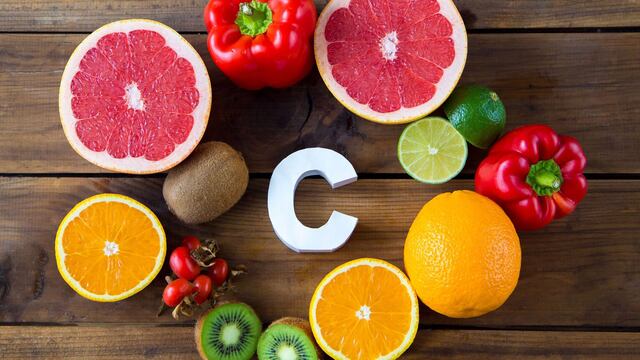Vitamin C is a vital antioxidant that helps protect our bodies from the effects of free radicals. Here’s how to know when you aren’t getting enough of it.

These signs indicate that you need more vitamin C in your diet
A varied diet is essential for the body. It is reflected in the state of mind, in sleep, rest, even in character. It is more than just getting your necessary vitamins and minerals.
Vitamin C deficiency can be prevented by eating the recommended amounts of fresh fruits and vegetables, or by taking the recommended amount of vitamin C in the form of daily supplements, which depends on age and gender. The Food and Drug Administration (FDA) recommends 90 mg of vitamin C in adults and children 4 years and older.
Signs that your body gives you when you lack vitamin C
There are times when only a blood test gives you the exact data on a lack of vitamin C. Vitamin C has multiple health benefits, it is a powerful antioxidant capable of delaying oxidative stress related to many diseases, especially chronic ones, it reduces cell inflammation, acts against diseases such as Alzheimer’s and is very easy to find in natural foods such as fruits and vegetables.
A varied, healthy, balanced diet should be enough for our body to absorb the vitamin C necessary for proper functioning.
The lack of vitamin C becomes noticeably visible in adults when they feel tired all the time, weak and irritable; lose weight without a specific diet or have non-defined pain in muscles and joints on a constant basis.
What is scurvy?
A severe deficiency of vitamin C produces scurvy, whose symptoms appear after months of deficiency of this vitamin. Bleeding can occur under the skin (particularly around hair follicles or in the form of bruises), in the gums, and inside joints.
- The gums acquire a purple hue, swell and become spongy; over time, teeth shift.
- Hair becomes dry, brittle and coily (like a corkscrew)
- The skin appears dry, rough and flaky.
- Fluid may accumulate in the legs.
- It can progress to anemia.
- Infections may appear and wounds may not heal well.
Scurvy is treated with high doses of daily vitamin C supplements, followed by a nutritious diet that provides 1 to 2 times the recommended daily amount. The diet should include a high consumption of fresh fruits and vegetables. Most symptoms disappear after about two weeks.
Foods with vitamin C
Fruits and vegetables are the best sources of vitamin C, among the main fruits with the highest content of vitamin C we find guavas, kiwis, citrus fruits such as oranges, lemons, papayas, strawberries and among the main vegetables bell pepper, thyme, parsley, spinach, kale, broccoli, among others.
Related stories

How - and why - Coke became kosher
The vitamin C content of a food may decrease when it is cooked or stored for a long time. It is possible that when cooking food in steam or in microwave ovens the loss of vitamin C is less. Fortunately, many of the best sources of vitamin C, such as fruits and vegetables, are eaten raw.
Vitamin C Benefits
- Strengthens the immune system.
- Helps reduce chronic cell inflammation.
- Vitamin C consumption protects cells from harmful molecules called free radicals.
- Promotes a better lipid profile (cholesterol and triglycerides).
- Consuming vitamin C may help lower the risk of heart disease.
- Vitamin C can help lower blood pressure in both people with and without high blood pressure.
- Helps reduce uric acid levels in the blood.
- It protects memory as we age.
- Vitamin C may help improve the absorption of iron from the diet.


Complete your personal details to comment